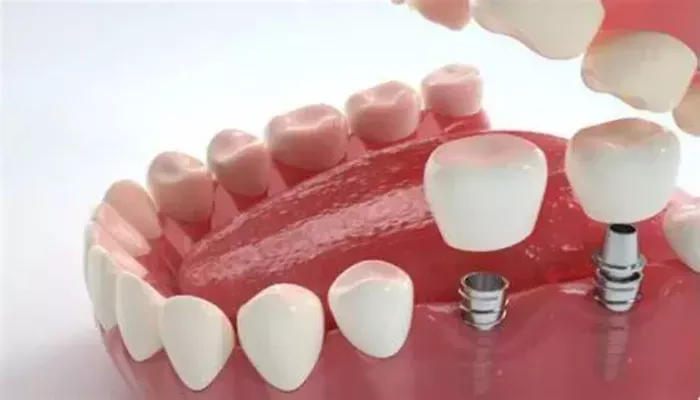Dental implants are a common solution for tooth replacement. They are popular for their durability and natural appearance.
Among various types of dental implants, 4-tooth implants are used to replace a group of four missing teeth.
While these implants have benefits, it is crucial to understand their disadvantages. This article will delve into the challenges and drawbacks of 4-tooth implants, providing a comprehensive overview for potential patients.
Complex Surgical Procedure
The surgical procedure for 4-tooth implants is complex. It requires precise planning and execution. The dentist must place the implants accurately in the jawbone. This process involves multiple steps:
Initial Consultation: The dentist assesses the patient’s oral health.
Imaging and Planning: Detailed imaging, such as X-rays and CT scans, are used.
Surgery: Implants are placed into the jawbone.
Healing: The healing process, or osseointegration, takes several months.
Each step has its challenges. For example, during the surgery, there is a risk of damaging surrounding tissues. This complexity can make the procedure daunting for both patients and dentists.
High Cost
4-tooth implants are expensive. The cost includes various components:
Consultation Fees: Initial assessments and planning consultations.
Surgical Fees: The actual implant placement procedure.
Materials: High-quality materials for the implants.
Follow-Up Care: Post-surgery check-ups and potential adjustments.
These expenses can add up quickly. Many insurance plans do not fully cover the cost of dental implants. This financial burden can be a significant disadvantage for many patients.
Extended Healing Time
The healing process for 4-tooth implants is lengthy. After the surgery, osseointegration must occur. This is when the jawbone fuses with the implant. This process can take several months. During this period, patients must follow strict care guidelines:
Diet Restrictions: Avoiding hard and chewy foods.
Oral Hygiene: Maintaining excellent oral hygiene to prevent infection.
Regular Check-Ups: Frequent visits to the dentist for monitoring.
Extended healing time can be inconvenient and uncomfortable for patients. It also increases the risk of complications if care instructions are not followed meticulously.
See also: How Long Are Dental Implants Guaranteed For?
Risk of Infection And Complications
Like any surgical procedure, 4-tooth implants carry a risk of infection and complications. These risks include:
Infection at the Implant Site: Bacteria can enter the surgical site, causing infection.
Nerve Damage: Incorrect placement can lead to nerve damage, causing pain or numbness.
Sinus Problems: Implants in the upper jaw can protrude into the sinus cavities, causing issues.
These complications can lead to additional treatments and surgeries. They can also result in prolonged discomfort and inconvenience for the patient.
Bone Density Requirements
Successful 4-tooth implants require adequate bone density in the jaw. Not all patients have sufficient bone mass. Factors affecting bone density include:
Age: Bone density decreases with age.
Previous Tooth Loss: Long-term tooth loss can lead to bone resorption.
Medical Conditions: Conditions like osteoporosis affect bone density.
Patients with low bone density may require bone grafting. This additional procedure involves transplanting bone tissue to the implant site. Bone grafting adds to the cost, complexity, and recovery time of the implant process.
Potential for Implant Failure
Implant failure is a significant concern. Although rare, implants can fail due to various reasons:
Poor Osseointegration: The jawbone does not fuse properly with the implant.
Infection: Persistent infections can lead to implant failure.
Mechanical Issues: Problems with the implant components or placement.
Implant failure can be distressing for patients. It often requires removal of the failed implant and additional corrective procedures. This can extend the treatment timeline and increase costs.
Discomfort And Pain
Post-surgery discomfort and pain are common. Patients may experience:
Swelling and Bruising: Around the implant site.
Pain: During the healing process.
Sensitivity: In the surrounding teeth and gums.
Managing this discomfort often involves pain medication and careful monitoring. Persistent pain can indicate complications, requiring further medical attention.
Maintenance And Care Requirements
Maintaining 4-tooth implants requires diligent care. Patients must:
Brush and Floss Regularly: To prevent plaque build-up.
Use Special Tools: Such as interdental brushes or water flossers.
Attend Regular Dental Check-Ups: For professional cleaning and monitoring.
Failure to maintain proper oral hygiene can lead to peri-implantitis. This condition is an inflammation of the tissue around the implant. It can cause bone loss and implant failure if not treated promptly.
Psychological Impact
The psychological impact of dental implants should not be overlooked. Patients may experience:
Anxiety: About the surgery and potential complications.
Stress: Due to the financial cost and extended treatment time.
Self-Esteem Issues: Related to oral health and appearance.
These psychological factors can affect a patient’s overall well-being. Support from dental professionals and mental health resources can help mitigate these issues.
Aesthetic Considerations
While dental implants aim to improve aesthetics, there can be challenges:
Color Matching: The implant crown must match the natural teeth.
Gum Recession: Over time, gums can recede, exposing the implant.
Bone Resorption: Continued bone loss can affect the appearance of the implant.
These aesthetic issues can affect patient satisfaction with the final result. Adjustments and additional procedures may be needed to achieve the desired look.
Limited Suitability
Not all patients are suitable candidates for 4-tooth implants. Factors that can affect suitability include:
Overall Health: Conditions like diabetes can affect healing.
Oral Health: Gum disease and other oral health issues must be addressed first.
Lifestyle Factors: Smoking can impede healing and increase the risk of complications.
Assessing suitability requires thorough evaluation by a dental professional. In some cases, alternative treatments may be recommended.
Conclusion
4-tooth implants offer a durable and aesthetic solution for missing teeth. However, they come with significant disadvantages. The complex surgical procedure, high cost, and extended healing time are considerable challenges. Risks of infection, implant failure, and the need for diligent maintenance also pose potential issues. Psychological and aesthetic factors further complicate the decision-making process. It is crucial for patients to thoroughly understand these disadvantages and consult with dental professionals to make an informed decision. While 4-tooth implants can provide excellent results, they are not without their drawbacks.

